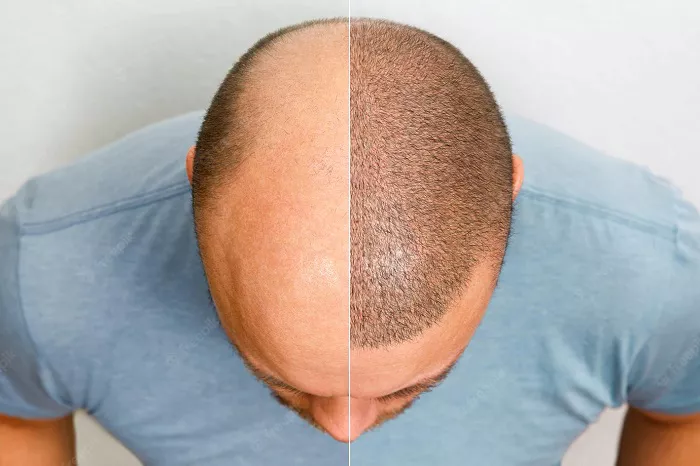Hair loss can be a frustrating and embarrassing experience for many people. While there are many hair loss treatments available, hair transplant surgery has become an increasingly popular option for restoring hair growth and improving self-confidence. In this comprehensive guide, we will explore the effectiveness of hair transplant surgery, including the factors that can affect the success of the procedure.
How Does Hair Transplant Work?
Hair transplant surgery works by taking hair follicles from a donor area of the scalp, typically at the back or sides of the head, and transplanting them into the recipient area, where the hair is thinning or balding. The hair follicles are carefully placed in the desired location, taking into account the direction and angle of the hair growth to achieve a natural-looking result.
There are two main types of hair transplant procedures: follicular unit transplantation (FUT) and follicular unit extraction (FUE). FUT involves removing a strip of skin from the donor area and dissecting it into individual follicular units, which are then transplanted into the recipient area. FUE involves extracting individual hair follicles from the donor area and transplanting them into the recipient area.
The success of hair transplant surgery depends on several factors, including the patient’s hair loss pattern, the quality and density of the donor hair, the surgeon’s skill and experience, and the patient’s adherence to post-operative care instructions. Patients with a stable hair loss pattern and thick, healthy hair in the donor area are more likely to achieve successful results. Patients should choose a qualified and experienced hair transplant surgeon and follow post-operative care instructions to ensure the best possible outcome.
Overall, hair transplant surgery can be a highly effective solution for restoring hair growth and improving self-confidence. With proper care and maintenance, the transplanted hair can last a lifetime, providing natural-looking results that blend seamlessly with the patient’s existing hair.
Factors Affecting the Success of Hair Transplant Surgery
The success of hair transplant surgery depends on several factors, including:
Hair Loss Pattern:
The success of hair transplant surgery depends on the patient’s hair loss pattern. Patients with a stable hair loss pattern, where the hair loss has stabilized and is not likely to progress further, are good candidates for hair transplant surgery. Patients with an unstable hair loss pattern, where the hair loss is still progressing, may not be good candidates for the procedure.
Quality and Density of Donor Hair:
The success of hair transplant surgery also depends on the quality and density of the donor hair. Patients with thick, healthy hair in the donor area are more likely to achieve successful results than patients with thin or damaged hair.
Surgeon’s Skill and Experience:
The skill and experience of the surgeon performing the procedure is also a critical factor in the success of hair transplant surgery. Patients should choose a qualified and experienced hair transplant surgeon who has a proven track record of successful procedures.
Post-Operative Care:
The success of hair transplant surgery also depends on the patient’s adherence to post-operative care instructions. Patients must follow the surgeon’s instructions for caring for their scalp and hair after the procedure to ensure proper healing and minimize the risk of complications.
Age and Health of the Patient:
The age and overall health of the patient can also affect the success of hair transplant surgery. Older patients may have less success with hair transplant surgery, as their hair follicles may be weaker and less likely to survive the transplantation process. Patients with underlying health conditions that affect hair growth, such as alopecia areata or thyroid disease, may also have less success with the procedure.
Overall, the success of hair transplant surgery depends on several factors, and patients should choose a qualified and experienced surgeon and follow post-operative care instructions to achieve the best possible results.
Conclusion
Hair transplant surgery is a safe and effective solution for restoring hair growth and improving self-confidence. With advanced techniques and experienced surgeons, patients can achieve natural-looking results that can last a lifetime. However, the success of the procedure depends on several factors, including the patient’s hair loss pattern, the quality and density of the donor hair, the surgeon’s skill and experience, and the patient’s adherence to post-operative care instructions. If you are considering hair transplant surgery, it is important to choose a qualified and experienced hair transplant surgeon and to discuss your goals and concerns with the surgeon during the consultation process.
Related Topics:

